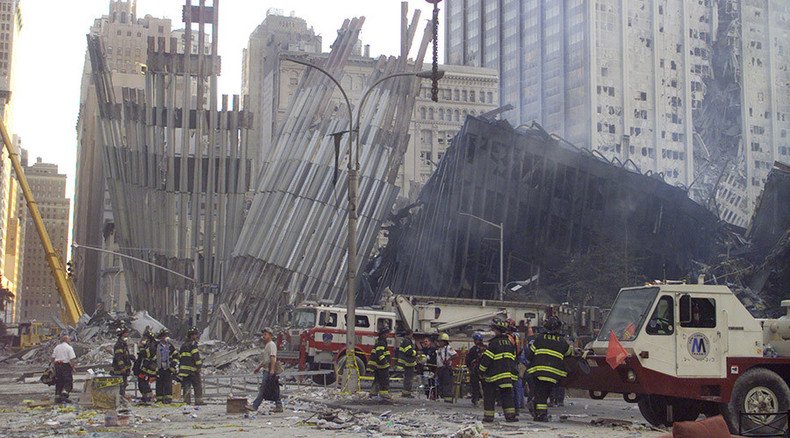Congress fails to renew 9/11 responders’ medical care

The healthcare program for 9/11 first responders expired at midnight on Wednesday after Congress failed to act. More than 72,000 people were registered under the program for yearly check-ups on 9/11-related illnesses and 33,000 were receiving treatment.
With the expiration, the program will cover first responders until the end of the year but they will start facing challenges by February 2016. If it is not renewed, the program will have to start shutting down by next summer.
First responders and advocates want to make the law permanent before it runs out of money early next year.
This is NUTS..They are all crazy,heartless,greedy uncaring
Senate GOP blocks 9/11 first responders health plan bill http://t.co/fTqJK4eoIe
— Kimberly Ourlian (@ravonnevermore) September 18, 2015John Feal, a former World Trade Center demolition worker and leading advocate for sick responders, said some 72,000 people are registered with the health program across the US and are monitored or given annual check-ups. He said 33,000 are currently receiving treatment for 9/11-related illness that include shortness of breath, asthma and at least 50 different types of cancer.
“At midnight last night, Ray Pfeifer’s stage 4 cancer didn’t expire with the bill. He still has stage 4 cancer. Paul Johnson, who has pulmonary fibrosis, didn’t expire – he is going to die, and he needs this program,” Feal, the executive director of the FealGood Foundation, told RT.
Firefighter Ray Pfeifer rushed to Ground Zero on September 11 and remained there, working every day amid the toxic air until May 2002. He has renal cancer.
The Zadroga Act, a federal law passed in 2010, provides medical monitoring and treatment for 9/11 first responders. It was named after James Zadroga, who died after working at Ground Zero.
"We never intended for this important legislation to expire so quickly, but, once again, Washington politics got in the way," US Reps. Carolyn Maloney, Jerrold Nadler and Peter King of New York wrote in an op-ed Wednesday in the political newspaper The Hill.
"Congress cannot fail these men and women," they wrote. "Without action, our 9/11 heroes will receive notices in the spring that our country has failed to stand by them."
‘Toxic levels of bulls**t’: Jon Stewart urges Congress to renew 9/11 responders’ benefits
http://t.co/TcQdgbqDvLpic.twitter.com/nkujVcR9Dp
— RT America (@RT_America) September 17, 2015Feal said that before the bill got passed in 2010, people were just being monitored.
“Now the program not only monitors you, it treats you, gives you medications, and does preventive medicine,” he said.
The Associated Press reported that House Republicans have been supportive of the program but have opposed its permanent extension because they wanted the chance to periodically review it and make sure it is operating soundly. The Senate has not moved a bill.
Five years ago, when the bill was negotiated with Senator Richard Colburn (R-Maryland) and Senator Mike Enzi (R-Wyoming), they agreed to put in a sunset provision so there could be monitoring in case of abusive spending or fraud.
“Five years on, there has been no abusive spending, there’s no fraud,” said Feal. “We gave…them what they wanted. And now after we prove there is no fraud or abusive spending, we want a permanent bill.”
Lawmakers and advocates like Feal are pressing for a permanent bill to have the status of a laws such as the Black Lung Benefits Act of 1973, which provides monthly payments and medical benefits to disabled miners suffering from pneumoconiosis, or The Radiation Exposure Compensation Act, which provides compensation for those exposed during the US nuclear testing program and those who worked in uranium mines.












